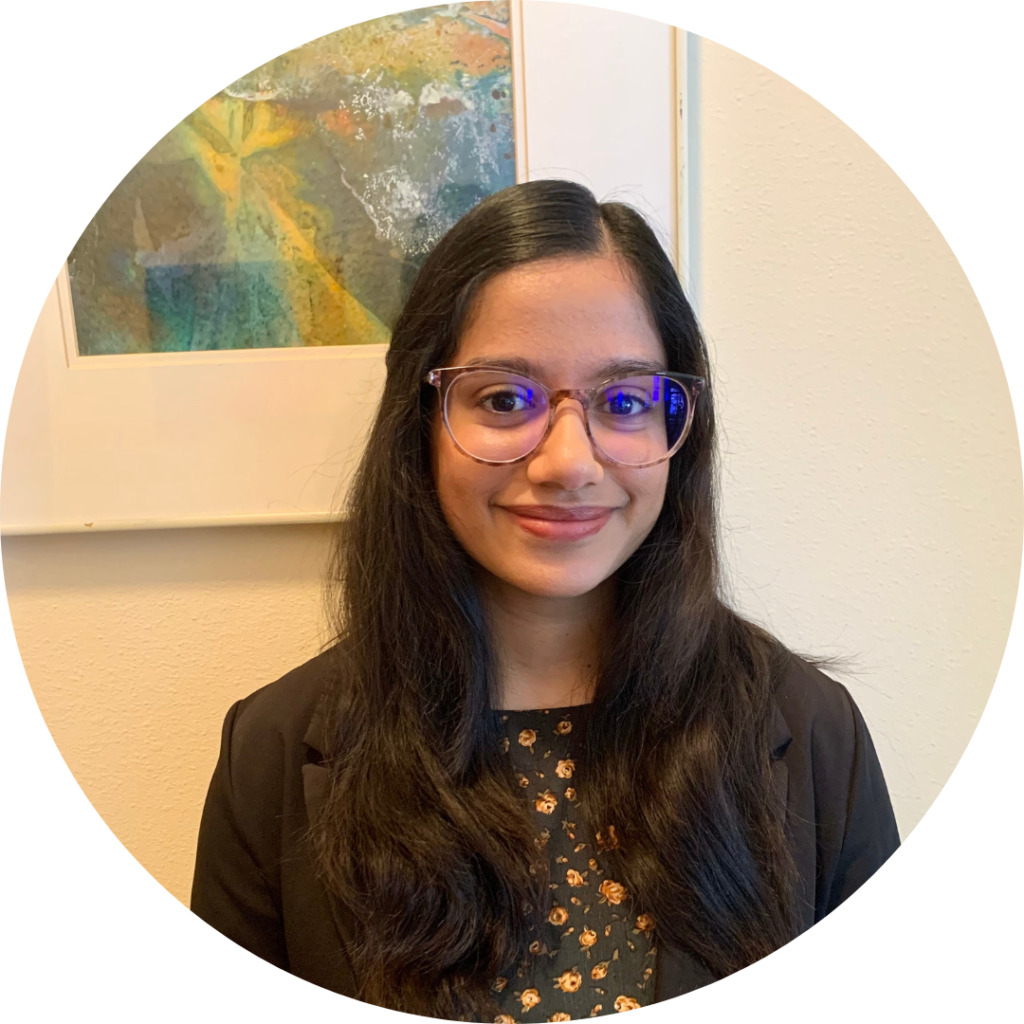By Kuhelika Ghosh
When I work with international undergraduate students at the University of Wisconsin–Madison Writing Center, I often find myself taking a moment or two to acknowledge the specific challenges that the student shares with me. During some of these conversations, I end up briefly sharing my own experiences during my undergraduate degree when I struggled with writing within certain academic genres as a new international student.
I still remember the first time I shared my international academic identity with a student.

I was working at the Multicultural Student Center, one of the satellite locations of the UW–Madison Writing Center, where students belonging to diverse nationalities, races, ethnicities often come for writing help due to the scope of the Multicultural Student Center. During the first few minutes of the meeting, the student shared with me that he was a freshman from an international country and found it difficult to write academic papers since the structure was not something he was taught in school.
For a minute, the Writing Center setting faded to the background in my mind. I found myself sharing that I was from the same town he mentioned and had faced similar challenges during my undergraduate degree a few years ago. We spent a few minutes talking about the faults of American higher education – how the system expects students to possess the same writing backgrounds and often does not provide any resources for those who might need to start from scratch.
Reflections on My Positionality as a Writing Center Tutor
Revealing my identity as an international student who had faced writing challenges in the past was not easy. The session went well, and the student left with tips and tricks to structure an academic essay, build a clear and effective argument, and cite efficiently. However, I left the session feeling vulnerable about revealing our shared identity.
I wondered to myself – was I supposed to maintain a façade of all-knowingness as a writing center tutor? Or could I equalize the tutor-student relationship and make room for empathy based on shared identity and experiences? The biggest question that plagued my mind was – if I continued to reveal my identity as an international student with previous writing challenges, would students still perceive me as a valid writing center tutor? Did my previous challenges take away from my current experience?

These questions led me to think about my own positionality as a tutor within the writing center. Was there room within a writing center session to make space for marginalized identities, both my own as well as my students? Scholars suggest that as writing center tutors of color, we must consider “our relationships and responsibilities to other people of color within the specific geographic and cultural places we find ourselves” (Wang). We must continue to ask ourselves, “what are the connections, threads, and ties that bind us?” (Wang).

I find Wang’s provocation crucial to working with international students and indeed other marginalized groups of students at the writing center. Acknowledging the connections and threads that tie tutors to students can help students feel comfortable being vulnerable about their writing challenges as well as allow the tutors to openly share advice on how to deal with these challenges.
However, it is not always easy to figure out how or when to share your identity with students. Below, I have provided two strategies to navigate this process along with examples from my own writing center practice. I hope that these strategies can help tutors make international students feel more confident in their writing practice and underscore the key point that writing is a lifelong process of learning.
Strategies to Navigate Sharing your Identity with Students
Empathetic Listening
One of the key strategies that I use in my writing center sessions is empathetic listening, focusing on noticing the vulnerabilities my students are trying to share with me and highlighting the identities I share with them. Empathetic listening and learning are practices that are already part of a writing center’s toolkit in many institutions. Some scholars have put forth transformative listening as a “form of actional and decolonial work” that can help students of color navigate the academy successfully, while others advocate a blend of empathetic listening and authentic listening to allow for the voices and lived experiences of marginalized members to be heard and made visible in writing centers. (García 32-33; Stark and Essmiller).
For example, I often practice empathetic listening in my own writing center teaching when I encounter students who share vulnerable experiences with me with regard to their struggles around academic writing. In these instances, I devote some time from the session to listen to the student’s concerns attentively, while acknowledging the trials they have faced with verbal affirmations or nonverbal gestures, such as nods. While some people might see empathetic listening as taking valuable time away from writing center teaching, the ultimate goal is to make students feel heard and understood in ways that they are often not acknowledged within the academy. This component helps students regain confidence in their own stories and their writing process.
Collaborative Learning Through Translingualism
Collaborative learning is another strategy practiced with multilingual writers in the writing center, who are often marginalized because of the focus on standard English in U.S. higher education. Multilingual writers feel more confident in their ability to succeed in higher education “when curious, open-minded, empathetic peer tutors invite multilingual writers to negotiate and co-construct meaning” (Blazer and Fallon). One way to do so is to promote translingualism by allowing multilingual speakers to use their full linguistic, dialectal, and multimodal repertoires and not constrain them to the boundaries of a certain language (Bouza, Cavnar, and Tucker).
Translingualism scholarship specifically speaks to the experience of multilingual writers. However, the importance of acknowledging writers’ cultural identities extends to other historically marginalized writers in higher education spaces as well. Most international students struggle with academic writing styles and genres within higher education due to the vast difference in writing curriculums globally. Depending on their countries of origin, many international students are often multilingual writers as well.
Due to this overlap, I often turn to strategies of translingualism to promote collaborative learning with my students. One example is when students are looking to strengthen their arguments for course papers or research projects. Students often do a better job communicating their arguments to me when they are given the chance to explain their ideas using cultural markers and terms from their own languages. This collaborative learning practice allows students to feel more comfortable pursuing these ideas in their papers after having communicated them effectively.

Translingualism can help us challenge oppressive monolingual ideologies, value multilingual writers’ languaging practices, and ultimately lead to an ethic of care (Bouza, Cavnar, and Tucker). International student writers face multiple challenges in the academy and it is important to cater to these writers with empathy and care. Studies have shown that second-language writing development for international students often takes place through confidence building (Severson, Egan, and Prim). Tutors can build confidence in international student writers by acknowledging their unique identities, empathizing with the challenges they have to face, and fostering collaborative learning.
Writing as a Lifelong Process of Learning
Working with international students and being in the position to empathize with their experiences gives me the confidence to assure them that they are indeed capable of navigating writing in the American university. I now know that the more I share my experiences of vulnerability and writing-related struggles, the more my students see me as a model for what a writer should look like – not as someone who is innately gifted or knows all the standard writing conventions and genres, but as an individual who is an learning every single day how to be a better writer (and will continue to do so).

Going back to the questions I posed to myself at the beginning of this piece, I truly believe that moments of empathy and shared vulnerability strengthen the writing and learning experience for students. Rather than giving the impression that I am a less credible tutor, it shows students that writing is a continuous and lifelong process and that they are indeed capable of being a part of this process.
Through practices of empathetic listening and collaborative learning, we need to make sure that writing center spaces can help international students succeed in American higher education, especially after they have traveled such a long way to pursue their degrees.
Works Cited
Blazer, Sarah, and Brian Fallon. “Changing Conditions for Multilingual Writers: Writing Centers Destabilizing Standard Language Ideology.” Composition Forum, 2020, https://compositionforum.com/issue/44/changing-conditions.php.
Bouza, Emily, Tim Cavnar, and Keli Tucker. “Translingualism: An Alternative to Restrictive Monolingual Ideologies in Writing Instruction.” Another Word, 2020. https://dept.writing.wisc.edu/blog/title-translingualism-an-alternative-to-restrictive-monolingual-ideologies-in-writing-instruction/.
García, Romeo. “Unmaking Gringo-Centers.” The Writing Center Journal 36.1, 2017, pp. 29-60.
Severino, Carol, Deirdre Egan, and Shih-Ni Prim. “International Undergraduates’ Perceptions of their Second Language Writing Development and Their Implications for Writing Center Tutors.” The Writing Center Journal 38.1, 2020, pp. 165-200.
Stark, Rachel, and Kennedy Essmiller. “Transformative Listening: Making Lived Experiences Visible.” Praxis: A Writing Center Journal 19.1, 2022. https://www.praxisuwc.com/191-stark-and-essmiller.
Wang, Isaac K. “Our Theories of Race Will Not Save Us: Towards Localized Storyings of Race, Colonialisms, and Relationships.” Praxis: A Writing Center Journal 19.1, 2022. https://www.praxisuwc.com/191-wang

Kuhelika Ghosh is a PhD student in the Department of English at the University of Wisconsin–Madison. Her research focuses on the intersection of postcolonial studies and the environmental humanities. She studies questions of multispecies justice, agency, care, and queer kinships within contemporary Anglophone literatures. Her writing appears in Edge Effects, Environmental History Now, and ariel: A Review of International English Literature. Currently, she is working on her dissertation, which explores multispecies gardening practices in contemporary Anglophone Caribbean literature and culture.

